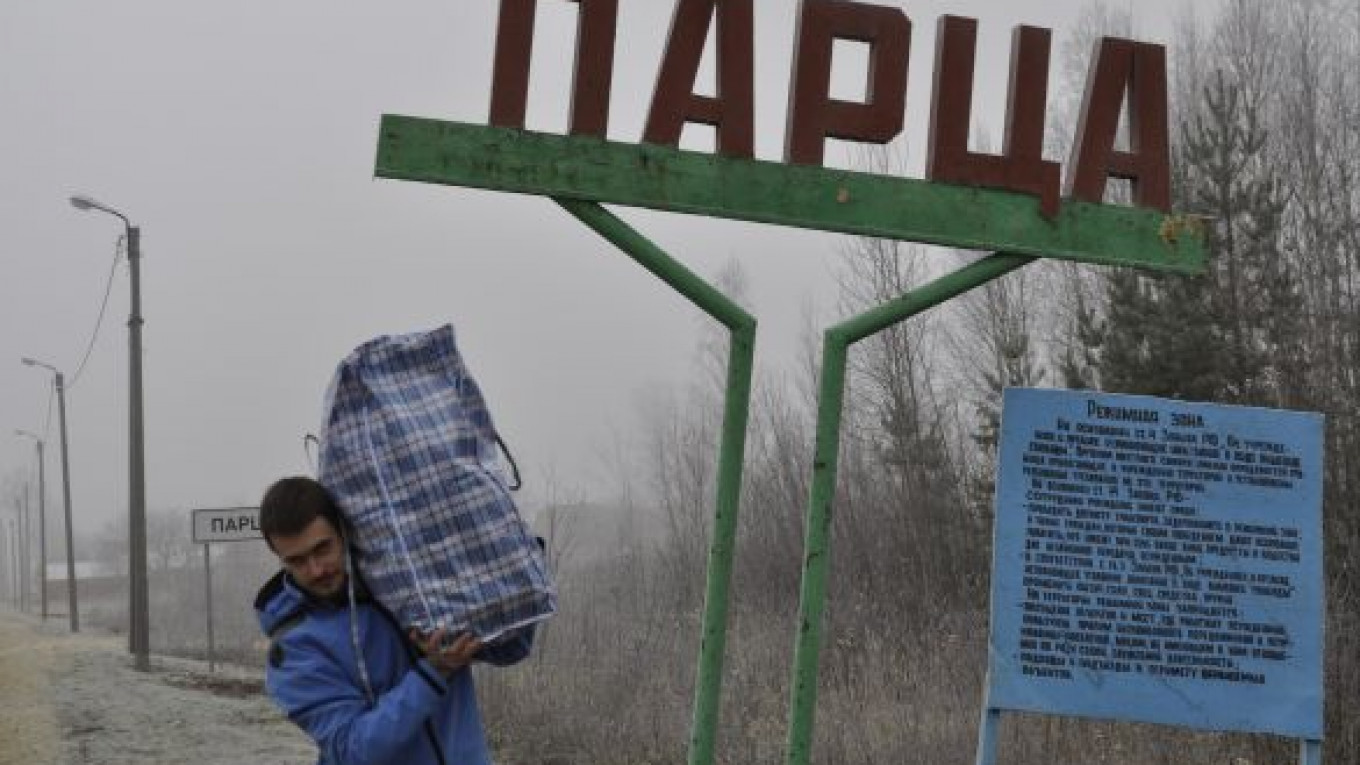PARTSA, Mordovia Republic — Prime Minister Dmitry Medvedev said the women in the Pussy Riot punk band serving two-year prison sentences should be set free, while a band member's husband tried to visit his wife in jail in the Mordovia republic.
Medvedev said Friday that he detested Pussy Riot's performance of a "punk prayer" at Moscow's Christ the Savior Cathedral during which they pleaded with the Virgin Mary for deliverance from President Vladimir Putin.
But Medvedev added the women have been in prison long enough and should be released.
He made a similar statement before October's appeal hearings, fueling speculation about their possible release.
Three members of the band were convicted on hooliganism charges in August. One of them, Yekaterina Samutsevich, was released on appeal last month, but the other two, Nadezhda Tolokonnikova and Maria Alyokhina, were sent to prison camps to serve their sentences.
Also Friday, Tolokonnikova's husband, Pyotr Verzilov, was turned away by authorities when he tried to visit her at a prison camp in the village of Partsa in Mordovia, a region known for the gulag camps filled with tens of thousands of inmates in the 1930s.
He had brought paperwork regarding the ongoing legal drama of the Pussy Riot trial that should have enabled him to meet his wife on prison grounds. But he was told that she remains in quarantine for several more days.
Tolokonnikova and a team of lawyers are planning an appeal to a regional court, requesting that her sentence be put off until the couple's daughter, 4-year-old Gera, is 14, Verzilov said.
Verzilov said his wife has been treated well by prison officials, but he attributed that to the publicity stirred up by the trial.
"All that would be needed here would be an order from someone high-placed in Moscow who'd say, 'Press her, make her feel the real Russian prison,'" Verzilov said. "People follow the instructions they are given from the top."
The women are woken up at 6:30 a.m., and their workday begins at 7:30 a.m. and continues for eight hours by law, but sometimes more. Most of the women in Tolokonnikova's prison work in the sewing industry, where they make clothes for Russia's special and civil services.
Tolokonnikova has not yet begun working mandatory shifts, but was offered the chance to break some asphalt within the prison compound a week ago, a task she undertook with fervor after being cooped up for too long, Verzilov said.
Relatives are allowed to visit the women inside the prison for several hours, six times a year. Conjugal visits, for three days, are permitted four times per year. With the right stack of paperwork, prisoners are allowed food, books, medicine and clothes — in black, the uniform of the prison — from relatives and friends.
Meanwhile, the country's main patent agency refused to register the words "Pussy Riot" as a trademark, Rospatent said Friday. The agency did not provide any details on why the request was turned down.
The registration request came from a company that belongs to the wife of the band's lawyer, Mark Feigin. Feigin tweeted that he will try to register the trademark in the West.






